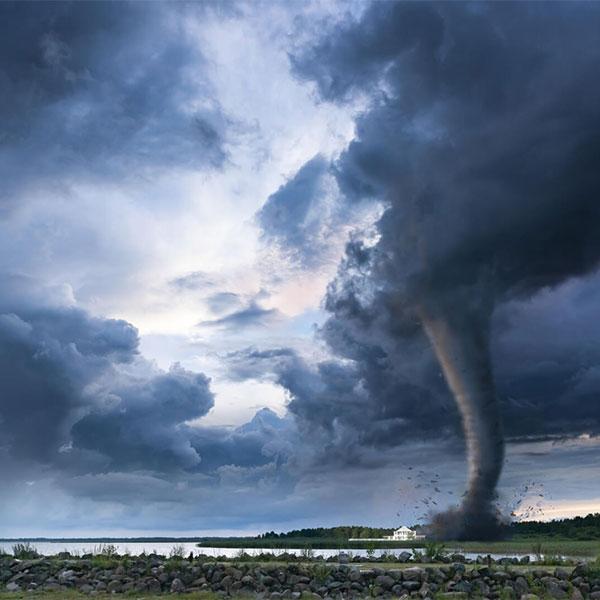Spring is here, and for many in the Midwest, that means the arrival of tornado warnings. Tornadoes are powerful, dangerous storms that require careful planning and preparation to stay safe.
I always remember a tragic news story about a small town devastated by a tornado. It made me realize a simple truth: people don’t plan to fail; they fail to plan. To help you prepare, here are four essential tornado safety steps:
Step 1: Have a Safe Shelter
If you see a tornado or hear warning sirens, take immediate shelter. The safest places in your home include:
- A basement or the lowest floor of your home.
- A windowless bathroom or closet — pipes in the walls make these areas stronger.
- Your bathtub with a thick blanket covering you for extra protection.
If you live in a tornado-prone area, check with your employer or school to learn their designated tornado shelters.
Step 2: Have an Emergency Kit
Keep an emergency kit nearby, with enough supplies for at least 72 hours. Rescuers may take that long to reach victims.

Include these items in your 72-hour kit:
- Food and water
- Warmth (blankets) and temporary shelter
- Light (flashlights) and communication devices
- Emergency tools and first aid supplies
- Sanitation and hygiene items
Other items to consider:
- Prescription medications and glasses
- Infant formula and diapers
- Important documents stored in a waterproof container
- Cash, traveler’s checks, and coins
- Books, games, or puzzles for children
- A prepaid phone card for emergencies
Step 3: Communicate with Friends & Family
Have a communication plan in case you’re separated during a disaster:
- Meet Outside Your Area: Designate an out-of-state contact who can help coordinate communication.
- Agree on a Meeting Location: Inform your out-of-area contact of your plans so they can update others.
- Stay Informed: Listen to updates via radio or TV. Use devices like NOAA Weather Radios for accurate disaster updates.
Step 4: Recognize Tornado Warning Signs
Watch for these signs that a tornado may be near:
- Green Skies: A greenish hue in the sky is a common indicator of severe storms.
- Hail or Heavy Rain: Unusually large hail during a warm day can signal a tornado.
- Tornado Sirens: Always take sirens seriously and seek shelter immediately.
- Whirling Dust or Debris: Watch for debris gathering under a cloud base.
- The Silence: If the air becomes still and quiet, stay in your shelter until authorities confirm the danger has passed.
Tornadoes can strike with little warning, but with a solid plan, safe shelter, and an emergency kit, you can protect yourself and your family. Remember, preparation today can save lives tomorrow.














